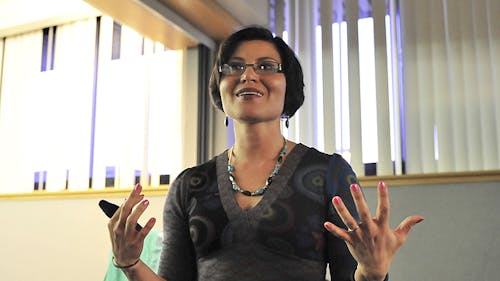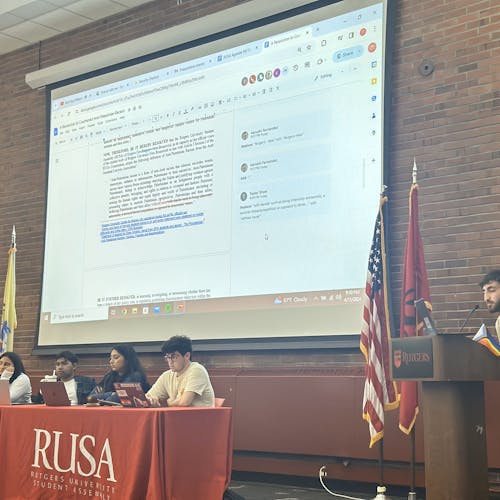Microsoft employee talks women in field of research

Rane Johnson-Stempson, the Education and Scholarly Communication principal research director at Microsoft Corporation, said she should not be working in Microsoft research.
The reason she got the job, she said, is because she took a risk — she asked the vice president of Microsoft research to hire her after working closely with him for two years. Too often, young women do not ask for what they want, but with a 50 percent chance of being told “yes,” they should start doing so, she said.
Johnson-Stempson’s lecture, sponsored by the Douglass Project for Rutgers Women in Math, Science and Engineering and Rutgers Department of Computer Science, took place last night at the Busch Campus Center.
Jacquelyn Litt, dean of the Douglass Residential College and Douglass campus, introduced the event and said the Douglass Project for Rutgers Women in Math, Science and Engineering was the first program of its kind in the country over 20 years ago.
Elaine Zundl, dean of the Douglass Project, said Johnson-Stempson’s lively personality and warmth draws others to her.
Johnson-Stempson said she gets paid to meet with brilliant women and underrepresented minorities all over the world. She has worked with UNICEF and World Bank to use computer science and technology to figure out how to take people out of poverty.
A first generation Vietnamese-American, Johnson-Stempson, said her father wanted to abort her because he did not want a daughter. He cared about his job, not his kids. He cared about money, what he looked like and what he could accomplish.
Her father, who was 59 when she was born, grew up in a generation where it was okay to be racist and to beat one’s wife and children.
At 14, Johnson-Stempson ran away from home, moved into a group home and then into foster care. She then emancipated and divorced from her parents.
“I’m only here today because I had a whole bunch of professors and deans who acted like my pseudo-moms and -dads,” she said.
Aside from making use of resources, she said not to worry so much about being average. Johnson-Stempson even failed an engineering class once and pointed out that she is one of the youngest executives in Microsoft, so that “F” had no impact on her life.
Johnson-Stempson went on to talk about computer science and said she wants to see more diversity in the field.
Johnson-Stempson said having women in computing is so important because men and women have different brains.
Women focus much more on relationships and do not jump to conclusions right away, whereas men can be more aggressive, she said. Men often do better with 3-D visualizations.
Often, women come up with much more creative solutions because they use both hemispheres of their brains equally, whereas men rely more heavily on their left sides.
Companies have found a 34 percent higher return on investment with women in their companies, she said.
“There are a lot of amazing women in computer science and a lot of rising stars that nobody knows about. … When women see more women, they see ‘I can be successful in this area and I can pursue it,’” she said.



